Davey Davis's Blog, page 16
March 6, 2023
DAVID: Members Only

The toadstool is tiny because J doesn’t know the dose yet, and anyway I have work in the morning. I chew and swallow, the bitterness lodging in my teeth. It’s snowing, and J and I are going for a nice long walk.
We’re just about to start bundling up when I remember. It’s like being in a car crash: knowing many things at once; the desperate wish to undo;…
February 27, 2023
David Davis

Guillame is looking for a new apartment. His relationship with his live-in boyfriend, Stéphane, has been in a nosedive, and the two of them agree that if they’re going to stay together, they’ll need a fresh start. Stéphane goes to stay with his parents while Guillame looks for his own place. With a fresh start, Guillame hopes, they can salvage what they have and build something new.
On the morning of moving day, an old hookup calls Guillame and offers to pierce him. Guillame is busy moving, naturally; can they meet later in the week? No, says the old hookup, he is only free this afternoon. Guillame decides to go for it. “I had been thinking about it for a long time,” he tells us. “Lots of guys I had been seeing or knew had it done. Not me. It was one of the only things I hadn’t already done. And now I felt like doing something serious.”
DAVID is a reader-supported publication. To receive new posts and support my work, consider becoming a free or paid subscriber.
Guillame decides to have his balls pierced. Despite a few hiccups, the piercing goes well enough, but after the piercer leaves—he has a nipple to attend to—the bleeding won’t stop. Hours later, Stéphane returns to help Guillame move, “looking very happy to see me.” But when he learns about the botched (?) piercing, he is thrown into despair. Knowing they won’t be able to have sex for weeks, Stéphane, a normally insecure and even somewhat submissive man, punches a wall.
“I realized,” Guillame tells us, “that I had just fucked over our new start.”

This week, I wrote an essay about cruising and I’m Going Out Tonight, an autofiction novel by gay French writer Guillame Dustan. The scene above is from another one of his novels, In My Room. (Obviously I haven’t gotten Dustan out of my system yet.)
Readers will already know that piercing is an interest of mine (and subscribers can read and see more about that in a paywalled post, if they can handle it). But what caught my attention about this scene from In My Room was how Dustan uses a failed scrotal piercing to encapsulate Guillame’s relationship with sex, desire, and intimacy. This naked self-sabotage, clear to Guillame only in hindsight, of course, undercuts his stated desire to save his relationship with Stéphane: he has prioritized a risk with a fling over his partnership, one that has been transformative for both of them. To wit, Stéphane has told Guillame that, bottoming for him, he’s “beginning to understand what fucking is all about.” “He gives his ass up gladly,” Guillame observes of Stéphane. “I can see he’s really obsessed with his man cunt…He’s the same way I was when I discovered my asshole with Quentin [his ex-boyfriend] five years ago.”
Fucking, talking, eating, dancing, caretaking, cruising other guys, and cohabitating don’t appear to be enough to outweigh a more or less nonsexual encounter with a man that Guillame doesn’t even bother to name. Why would he choose the cheap countercultural thrill of needle through nutsack over love?
In a 1920 essay called Beyond The Pleasure Principle, Freud expanded on psychoanalyst Sabina Spielrein’s writing on the death drive(s) to complicate his own formulations of the human instinct to self-preservation. He arrives at the conclusion that it is not just the search for pleasure and the avoidance of pain that satisfies our biological and psychological need. In fact, Eros, the biological “drive” that produces creativity, harmony, sexual connection, reproduction, and self-preservation, exists in opposition to another “drive,” the one producing destruction, repetition, aggression, compulsion, and self-destruction—the death drive. It’s in situations where the pleasure principle “cannot cope adequately” that the death drive emerges. Freud identifies these situations primarily as children's games and all-ages patterns of compulsive, repetitive, self-injuring behavior of the kind often now associated with traumatization and PTSD.
I hope I’ve gotten that right. (I’m sure I haven’t.) But since I hear the term “death drive” thrown around a lot in the context of SM activities like piercing, I wanted to attempt to get a grip on what that means before digging in here. At this point, we’re used to encountering stigmatizing “explanations” of SM, and other so-called high-risk “sexual” behaviors, within the context of trauma; through this lens (whose origins can be found a century ago in the work of the father of psychoanalysis), SM is, at best, a set of reactionary behaviors in response to certain kinds of damage. Even if we’re able to move away from conceptions of SM as deviance or even just cope, at best it’s seen as a sort of unconscious self-therapizing. The current narrative, pitying and infantilizing and often highly hypocritical, feels like a pat on the head to broken people with no other recourse to healthy, normal sexuality and connection.
Long-time DAVID readers will know that I’ve gone over the pathologization of sadomasochism at length. What can we do about it? Well, I think we can start by rattling the conceptual cage in which SM is often contained by exploring its other uses and purposes. This can be done not just by studying the ways in which SM is done intentionally (and, yes, politically), as happens with leather traditions, but by taking another look at the ways in which it is done “naturally,” instinctively, and, yes, even compulsively.
In In My Room, Guillame introduces latex, pain, and power exchange into sex, with Stéphane and with other men, when it starts to get boring, or when he is angry, or when he has learned that a friend has seroconverted but cannot comfort him with a hug because they are in public together. One might say that, with the last-minute ball piercing, Guillame has introduced risk to a foundering relationship like he has introduced a leather hood to a slow fuck in the past—though this time, it doesn’t work. Or doesn’t it?
In My Room ends with Guillame making plans to leave Paris for a job overseas. He makes his farewells. “Stéphane,” he tells us, “was my last date.” They meet in Guillame’s eponymous room, where they talk. “And then we get so emotional that we held each other in our arms. Electric erection. We kissed. It was powerful.” It is only now, as they’re leaving each other, that Guillame sucks Stéphane’s dick “like I never sucked it before. With love.”
Afterward, they go out to eat. They drink, they laugh. Stéphane drives Guillame back home, where they say goodbye in the final paragraph of the book. “I know I should have left him much earlier,” Guillame admits to us. “When I told myself for the first time that I would never be in love with him. But it felt so good to be loved by him. So good.”
I’ve written before about SM as an adaptive intimacy. Perhaps it’s also an expansive one, an invitation to bring what we call sex—but which is actually something much more interesting and complex—outside of the places that are circumscribed for it. It need not involve whips, chains, or the normal paraphernalia, only a willingness to feel discomfort, physical or otherwise. To do so is unavoidable for some; as an HIV+ gay man at the height of the pandemic, how is Guillame to distinguish between risk and safety in the same way that normal people do? What is his death drive and what is his Eros when his sexuality, HIV status, and lifestyle are considered neither normal nor safe?
I take safety very seriously, as do the people I play with. But I doubt, or at least question, its primacy when we talk about SM, or even sex generally. (This is why “risk-aware” is superior, in my opinion, to “safe and sane.”) The overreliance on safety, or rather the notion of safety, which can become a fantasy of control, not only prevents us from accessing pleasure, or the thrill of danger, or the rewards of risk; it flattens the intimacy that we are supposedly seeking. What if, like Guillame (and Dustan, his self/creator), you could acknowledge resentment, or boredom, or anxiety in the course of a “normal” sexual encounter with another person? Or even elsewhere? Heartbreak can’t be compared to a heart attack, but neither are safe, are they?
“Sex” is so closely, restrictively associated with “pleasure” that there is little room for otherwise in our conception of it, and yet sex, like a conversation, a meal, a dance, takes place between people, often those who have met each other before and thus have a backstory, a context, a history. Hookups with someone about whom you know nothing, or next to it, are powerful and exciting and even intimate for their own reasons. But sex with someone you know, perhaps very well, cannot pretend to be that—and why should we want it to? Guillame, Stéphane, and the men they fuck together and separately respond to their feelings in the sexual moment. There is no script. There is no pure ecstasy, pleasure, or climax (particularly if you’re fucking for a long time, which is often needed for more “extreme” kinds of sexual pleasure, like fisting) without the frictions of anger, anxiety, boredom, fear, and a host of other negative affects.
One of the things I find so compelling about Dustan is his way of bringing me to a familiar conclusion: that the difference between SM and gay sex is sometimes (or perhaps even more often than sometimes) impossible to identify, and what’s more, that the difference between gay sex and gay life is just as nebulous.
Find me on Twitter and Instagram. Get my second novel, X, right here.
February 17, 2023
David Davis
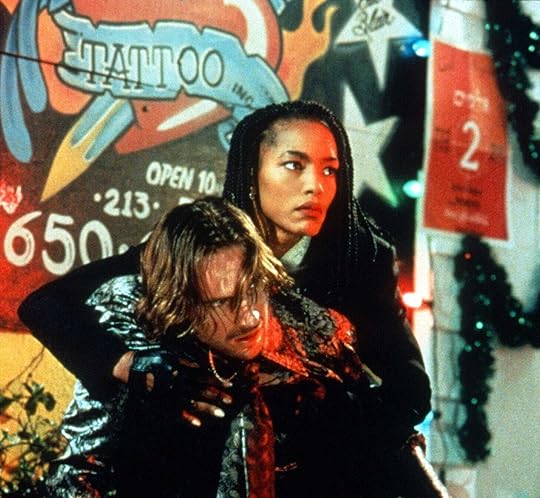
Timing’s a funny thing. A few weeks ago, just as dating-cum-hookup app Lex announced that it would be refocusing on “friends and community”—to great gay consternation—I received my advance copy of Make the Golf Course a Public Sex Forest! in the mail. If the former development is an example of the ongoing privatization and gentrification of digital spaces, then the latter is a demand for its opposite, what you might call a fuck commons. As the editors of Sex Forest! write in their introduction, “Public space is what we need, not in the narrow sense of government-funded projects but rather in the sense of open, non-hierarchical containers for a range of different uses and possibilities.” Possibilities which include public sex without the risk of violence, from police and other sources.
I thumbed through my copy of Sex Forest! with interest, scanning a genre-diverse selection of poetry, S/M erotica, and horny hybrid fiction. This balance of what the editors call “hot porn” and “headier theoretical and historical explorations into the relationship between sex and notions of the public” aspires toward upending the same social, economic, and legal forces that have transformed Lex from a would-be descendent of the lesbian personal ads of On Our Backs to the kind of place where, to revisit a personal anecdote, one might be accused of human trafficking while seeking a co-top for their femme bottom girlfriend.
Disappointing though some find Lex’s new chapter to be, it was inevitable. There’s just no way that a free, American, venture-backed sex app purportedly for “lesbian, gay, bisexual, trans, [and] queer” people could continue to exist, not in the same hellscape where sex workers are purged not just from their own websites, but from all social media platforms, particularly those designed for recreational sexual and romantic connection1. So long as public sex is a crime, public women (to use an antiquated term), and all who are identified as such, will remain criminals—whether or not they’re fucking, whether or not their fucking is sanctioned by law. As the primary targets of legislation designed to discipline and punish public women, sex workers and trans women are already too proximate to gender obscenity; the women proximate to them are put at risk, too, albeit at a lower intensity, depending on other identity intersections2.
From the death of the search engine to the rise of FOSTA-SESTA-type assaults on those in the sex trade (as well as those who are trafficked, which this legislation is ostensibly meant to protect), the online privatization I mentioned was of course underway when Lex was still just an Instagram account, but things were admittedly more loose back then. Four or five years ago, Lex was where I met the most chaotic lovers of my fucked up Saturn return (not to mention my friend and one-time collaborator, photographer Elle Pérez). Though it hewed more toward the weekly newspaper model than eyeballing a hot bitch in the street, Lex was, or aspired to be, an online dyke cruising apparatus. Now it’s become/ing something else, as anything does when its goal is to be above-board, legal, and, most importantly of all, profitable.
As the punchline it’s come to be, Lex encapsulates the limitations imposed on those of us who can’t access the freedom of public sex in the same way that cis men who identify themselves (or more crucially, are identified) as queer. I’m like super open to pushback on this, but I suspect that this is why you can have a Grindr and not a Grinda; that is, a lesbian sex app that is explicitly about fucking, rather than about dating, relationships, networking, and, implicitly, monogamy in which any capital exchange happens behind the plausible deniability of a marriage contract. It’s one thing to pony up the overhead for such an apparatus. It’s another to execute the kind of backend enforcement required to manage any risk of solicitation to an extent that satisfies stockholders, VC funds, credit card companies, and the feds that it could be a safe bet.
Because how many workers do you know who can’t be on Tinder in their private lives? How many tgirls do you know who get magically deleted from Hinge? If you’re not one, or both, of these populations, are you and the dykes that make up your community sure that you’re far enough away from them that you could get away with a real-life cruising app? Because I’m not.

But why do we, as dykes, need an app in the first place? Fags, for all their Scruffs and their Sniffies, still have anonymous public hookups without the benefit of wifi. Why can’t—or don’t—dykes do the same?
This is a question posed in an essay found in Sex Forest! Authored by Kathy, it takes a stab at answering why, when it comes to cruising, dykes are “out of luck.” “Public environments where women can easily, within 10 or 20 minutes, meet and fuck other women do not and have never existed,” writes Kathy. I don’t agree with the answers provided to the question Kathy poses, but then, I don’t agree with the question itself. Regardless of how you define cruising, there is ample evidence to the contrary of Kathy’s claim, some of it supplied in this very essay. Daemonumx, a human library of dyke and gay history, came up with a litany of counter-examples off the top of her head (she also sent me this PDF)3. She’s also written about it here and here (and elsewhere, I’m sure). Long story short, dykes do cruise, and have since the criminalization of public sex.
I won’t argue that dykes can or do cruise in precisely the same way that fags do, because we as dykes are not (exclusively) fags. But we can safely put “dykes don’t cruise!” aside while taking the opportunity to explore the resonances this claim activates: anxieties about dyke and lesbian sexual desire; the differences between dyke and fag cruising, as well as the limitations of both and the interplay between the two (some of us are fagdykes!); the crucial role that straight people play in the act and culture of cruising, for both dykes and fags, which Kathy gestures toward, pointing out that dykes don’t have a corollary for fags’ trade, with which I can only sort of tenuously agree. To be provocative for a moment, if we’re to understand the act of cruising as inextricable from straight people, or even as a primarily transactional exchange between queer men and straight men, why isn’t the dyke equivalent turning a trick (i.e., why does the dyke equivalent of trade have to be a straight woman)?
I suppose my beef with this question, as it appears in Sex Forest!, is that I suspect it reaffirms dykes as a subsidiary of fags, obfuscates the challenges and dangers of cruising to fags of all genders, and forecloses on solutions to the problems that many dykes seem to struggle with vis a vis their sex lives in general (ones that Lex, even now, purports to answer): how do I find other dykes? How do I talk to them? How do I fuck them?
What I’m saying is, if we insist on differentiating between dykes and fags when it comes to public sex, we could choose to see it as an aperture rather than a slipknot. Cruising, for fags, is the criminalized reclamation of pleasure and power. Dykes, too, do this through cruising—so where else do we encounter these reclamations?

So. Lots to chew on here. I don’t mean for this newsletter to be understood as a takedown, or even a rejoinder, of either Kathy’s essay or of Sex Forest! All of us are writing about, around, and toward freedoms that we, in many different ways, are denied. The thing to remember about cruising is that it exists because public and transactional sex are illegal, and queer people can access neither the public nor sex with the same degree of safety that straight people can (your mileage may vary, etc., etc.).
If you are cruising, good for you! If you want to but aren’t sure if and how you can, I hope a few of the resources I’ve shared here can help you get started on your ~journey~. Stay safe out there, babes.
Find me on Twitter and Instagram. Get my second novel, X, right here.
1As well as those conflated with them, particularly trans women and transfeminine people.
2Public womanhood can constitute not just sex workers and trans women but all feminized genders further marginalized by houselessness, race, class, ability, HIV status, citizenship, indigeneity, and more.
3So it turns out idk how things work and this PDF is paywalled. While I figure that out, someone sent me an abstract to an article about non-binary cruising that is, regrettably, paywalled.
February 15, 2023
on the NYT
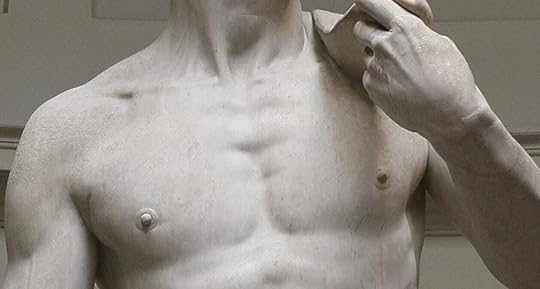
In New York City today, it’s 63 degrees Fahrenheit. The early February hazmat spill in East Palestine, caused in part by the deregulation of the shipping industry and the Biden administration’s crushing of last year’s railroad workers’ strike, has “basically nuked” the Ohio town. There was another mass shooting yesterday at Michigan State University (survived by a student who was already a survivor of Sandy Hook, by the way). On May 11, the Biden administration intends to end the COVID public health emergency.
These are real problems facing our country, some of them with global, even existential, implications. And yet, to hear the New York Times tell it, the youngest and most vulnerable members of a tiny minority group—trans children—receiving healthcare they need to survive poses some kind of threat that climate catastrophe, crumbling infrastructure, labor exploitation, stochastic gun violence, and a mass-disabling and -impoverishing event do not. The Times has demonstrated its investment in the production of the cis state, as Jules Gill-Peterson calls it, and the country’s broader white supremacist fascism. Along with “conservative” news media, like Fox New, stoking a sex panic around LITERAL CHILDREN is their preferred mode of accomplishing that.
This morning, a group of almost 200 journalists and writers released an open letter addressed to the Times regarding the newspaper’s editorial bias against trans, non-binary, and gender nonconforming people. (GLAAD also published a similar letter today.) I signed it and you can, too, right here.
Find me on Twitter. Get my second novel, X, right here.
February 6, 2023
DAVID: Members Only
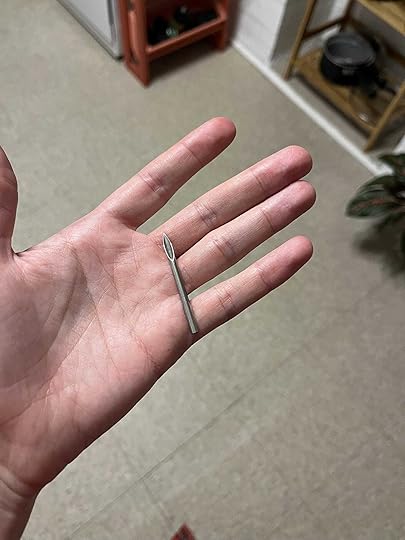
Below the cut are images of big needles going into my skin.
If you’re going to undergo suffering for any extended period of time, choosing a word or phrase to repeat can help you endure it. Here is my personal mantra: What is pain?1 I don’t repeat my mantra aloud. I repeat it in silence, in my head. The mantra is not a distraction, or it’s not meant to be one, anyway. Though mine manifests as a question, I ask it without expecting an answer, because it doesn’t exist, and I wouldn’t want it if it did.
By asking What is pain? while going through pain—sometimes at an intensity that feels unsustainable—I invite myself to deeper focus and to stronger identification with sensation. Counterintuitively, this has the effect of making the pain more manageable without diminishing it, I think because it allows me to experience it rather than merely react to it. Pain has a purpose, a very important one, but in a controlled environment with another person managing my safety for me, I have the opportunity to feel around it in a way I probably wouldn’t if I had encountered the pain by mistake or misfortune2. (The pain/pleasure binary isn’t real! It’s literally so not real!)
February 2, 2023
David Davis

The first year I lived in New York, I wound up in yet another bad relationship with a femdom. This relationship was nasty, brutish, and short, as I should have guessed it would be from all the red flags1, but I didn’t emerge from it empty-handed. Shortly before it all fell apart (who else attended that legendarily messy FIST launch party?), my ex gave me a Monstera deliciosa clipping, and though I had my doubts, I decided to let it live. Almost four years later, the single leaf occupies a hulking ceramic jar in my bedroom, now accompanied by something like ten other split fronds that gather (or discharge?) subtle beads of water, like knives under a broken faucet.
I’ve never been good at keeping plants alive. I tend to do the opposite, actually, rationing their sustenance and relegating them to windowless bathrooms. I’ve corrected this tendency as I’ve grown more conscious of it2, though no one would ever accuse me of having a green thumb. But this winter, for the first time, my Monstera is having problems. One of its leaves, an elder that incidentally gets the least sunlight of all of all his compatriots, has turned a sort of translucent yellow, recently and as if overnight.
Probably overwatered it, said Jesse. It’s true that the soil is still moist this long after watering day. Is it possible that I took care of my plant with too much gusto, that I paid it too much attention?
I don’t want my Monstera to die. At first, when it still lived in a jar of water, I almost dared it to. If it hadn’t been for a roommate, who assigned her plants names and personalities and sang to them when she watered them, my Monstera would have become a rubbery tabescence on top of the fridge, doomed to turn up a corpse on the front stoop. Now I’m invested, like when I’ve soldiered through the first four episodes of almost any TV show. In the last year or so, I’ve begun talking to my plants, though not singing to them, and certainly not naming them. They get some encouragement, sometimes in a baby voice, especially the Monstera. I’ll give credit where credit is due.
I don’t think my Monstera will die, but I resent my preoccupation with the possibility. Yesterday, instead of writing—there’s the next installment of my latest series, a piece I pitched for Irresistible Damage, and an essay on dyke cruising that’s been weighing on my soul, not to mention my third novel—I worried about the plant. I hope I don’t resent it so much that I kill it. Or fuss over it so much thatI kill it. I’m hell-bent on setting us both up for failure, it seems.
Find me on Twitter. Get my second novel, X, right here.
1Including the untrained dog. Oh, you’re dominant, but Rupert pisses inside?
2It helps that people, like Jade and Cristine, give me plants and then expect me to nourish them!
January 25, 2023
David Davis 41, part 2
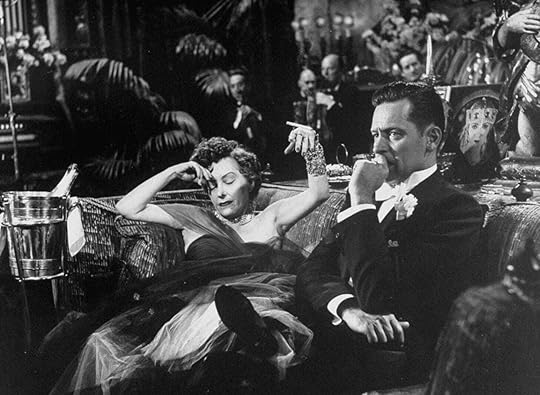
Read Part 1.
I can think of a lot of not-so-flattering reasons why people write. Control issues, as I mentioned in Part 1 of this series. Insecurity. Obsession. (When accused of being “extremely repetitious” by a critic, Nabokov defended himself on the basis of his a priori genius: “Derivative writers seem versatile because they imitate many others, past and present. Artistic originality has only its own self to copy.”) Then there’s hypergraphia, a behavioral condition characterized by the intense desire to write (or draw), which is a symptom of temporal lobe epilepsy; Fyodor Dostoevsky, himself epileptic, is among the prolific writers said to have been hypergraphic.
Why am I a writer? It’s interesting to approach art in this way, as if what we do and why we do it are the results of discrete, perhaps even random factors. As if writer were an identity with a root cause. Maybe the urge to write, or even the professional aspiration of writer, are biochemical fates, the irresistible results of our genetic recombinants locking into place when we were but a twinkle in our whatever’s eye.
Haha, jk. The problems posed by this line of reasoning are plentiful enough, but to keep things simple, the destiny of DNA doesn’t account for the external pressures that influence why we write (and perhaps more interestingly, why we don’t)1. As just one example, marginal writers can be overshadowed by the politics of marginality, when they’re published at all, that is. This ghettoization, to use Edmund White’s term from his 1995 essay about gay autofiction, means that gay writers, for example, must choose between work that is “highly coded, not to say obscure” and a “tiresome and overt obsession with homosexuality.” You, a writer, certainly have writerly choices, but naturally they’re constrained by who you are, when and where you live, and the political circumstances of your one wild and precious life. DNA can only get you so far. Tough titty.
Which is to say that when we ask ourselves this question—Why am I a writer?—we run the risk of reinscribing narratives that locate the writer within a rational meritocracy, rather than whatever all this is. The writer is reimagined as an individual with total control over their positionality, output, and reception. And yet I wonder, constantly constantly constantly, if a writer can ever be said to write alone, without an audience, even an imaginary one.
I certainly understand this tendency to individualize, and anyway, it’s fun: if the buck stops here, then I, who find myself interesting, may navel-gaze endlessly. At any rate, I wouldn’t be the first the acknowledge the diminishing returns of this tendency. For one thing, to buy into this idea that we actually have total control over our selves necessarily leads to the idea that it’s not only possible, but desirable, to optimize those selves. I’m so bored by the gamification of self-improvement, the way it bleeds into everything from “health and wellness” to relationships to art. It reminds me of the endless regurgitation of artistic properties, the way franchises like the MCU collapse stories by expanding them with prequel after sequel, spinoff after reboot. Some depths can’t be plumbed. It’s like going in search of a core in a garlic clove, slivering away until all you have left is nothing and a wet razor blade.
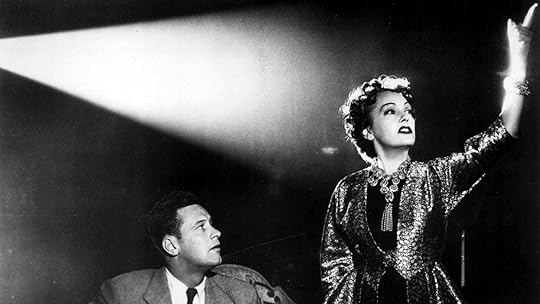
Not too long ago, there was a Gawker piece about the so-called resurgence of the Künstlerroman—the novel form that asks, How does this person become an artist? Per Sam Lipsyte2: “Obviously a lot of fiction by young people these days is still in an autobiographical or autofictional vein, inspired by Rooney and Lerner and others over the last decade. These novels often deal with the formation of an artist, and the Germans came up with a really good word for that, so I guess people are excited to use it.”
How did I become a writer? asks a different question, and prompts more revealing answers, than, Why am I a writer?, don’t you think? But I’ll leave all of that to you, along with some links to writing about writers that I’ve recently enjoyed. Until next time.
Find me on Twitter. Get my second novel, X, right here.
1Since we’re talking about having not just the permission but the ability to create under capitalism, may I direct you to this fascinating recent piece about the history of the term “burnout.”
2Incidentally, I’ve never read one of his books before. Just an FYI.
January 16, 2023
David Davis

While I’m not against public sex on principle (in fact, I insist on it), the risk of getting caught in flagrante delicto has never been a big turn-on for me. What can I say? I love safety. For this reason, when I went to meet a hookup at a co-working space last year, I did so with the vague hope that the danger would finally click. I’ll try anything a hundred times, you know.
Perhaps unsurprisingly, my hopes were dashed. Though I made my patriotic contribution to the ambient surveillance matrix with yet another cute video of my ass getting fucked, I couldn’t really feel the frisson of possible capture or humiliation. Despite the risks—the security personnel; the frosting on the glass walls that began a foot above the ground, exposing our stocking feet to the adjacent cells; the unlocked door—I was not afraid.
I walked home afterward under a blue sky, Stay Puft clouds, gentle cranes impressed into condo construction, thinking. Far from being dangerous, that particular co-working space on that particular day, I realized, presented less risk than most of my hookups do1. My diffident date was as harmless as they come, but even if he hadn’t been, he would have had more opportunity to hurt me if we’d met at his apartment, or in a car, or at a park in the dark. Some of the straight chasers I talk to express frustration about having to convince trans people that their worship won’t end in murder2. If they were willing to sacrifice a little more of their own safety, like my closeted date did by meeting me at his place of business, those chasers would probably have an easier time getting laid.
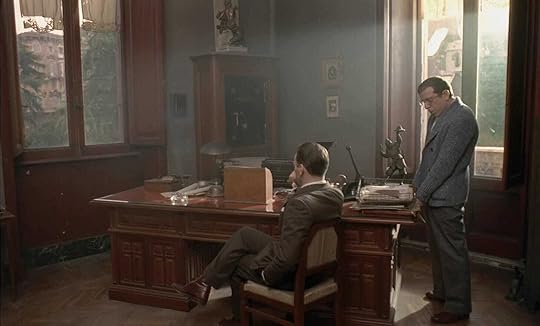
Not too long ago, a TikTok in which a young white gay man recorded himself sitting on the New York City subway went viral3. The text overlay says “omw to meet a guy i met online 8 mins ago” and the audio is the bit in Lana Del Rey’s “Happiness is a Butterfly” where she sings, If he’s a serial killer / then what’s the worst / That can happen to a girl who’s already hurt?” The song lyrics reaffirm what the TikTokker’s casual clothing and almost schoolmarm-ish pose—legs crossed, fingers clasped on the top knee—already tell us: that he is about to do something with at least some level of risk, and that he feels a little silly about just how resigned he is to that risk. Who among us?
I sometimes think of this TikTok when I’m on my way to meet a guy I met online 8 minutes ago, my horniness and curiosity alternating with that sense of silliness and resignation. It’s pleasant to know that some cis men share these feelings of vulnerability with the rest of us, not because I wish for them to be endangered but because being aware of their endangerment gives me a better sense of my own. One hallmark of feminine socialization (whatever that is) is the notion that we are uniquely unsafe by virtue of our bodies (your fault); for better or for worse, the dangers of the masculinely socialized (again—whatever that is, and I recognize the iffiness of ascribing it to gay men as a class) are concealed, de-linked from their bodies, or at the very least dignified with meaning4.
I suppose what I’m trying to say is that to be allowed to make the tradeoff in the same way that certain cis men may—that is, to be allowed to accept fear or silliness as the price of satisfying a desire—is, and my apologies for using this word, empowering. Such empowerment is surely a result of being white rather than otherwise, transmasculine rather than otherwise, etc; it’s also one of the privileges that we are hoodwinked into thinking lives inside identities rather than exists in circumstances and vibes. Risk can be seized, not just endured. It’s not perfect, but it’s what’s available. My advice, mercenary, is to enjoy it, this narcotic and beautiful and tasty thing.
As much as that TikTok resonated with me, or whatever, it’s not the first or favorite thing to think of when I’m on my way to meet a guy I met online 8 minutes ago. This bit of Frank O’Hara is: subways are only fun when you’re feeling sexy5.
Find me on Twitter. Get my second novel, X, right here.
1My body both invites and mitigates these risks.
2The gay ones don’t seem to encounter this problem as much, perhaps because they are not cursed with the sexual tunnel vision the straight ones are.
3Thank you to Jade for sourcing.
4See Footnote 1. I won’t forget about race, ability, class, all of that. Promise.
5Thank you to Frankie for sourcing.
January 8, 2023
David Davis 41, part 1
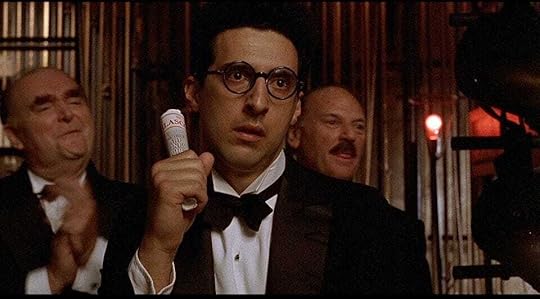
Not too long ago, I hooked up with a weird old man who made his own electronic music and had been to prison for stabbing his ex-girlfriend’s drug dealer. That’s a lot of information to get out of a single encounter with a stranger, but this guy—let’s call him Derek—loved to talk. Blowhards tend to be unobservant, but Derek paid close attention to whether I was listening and how, modulating his narrative according to my interest (more about his time milking morphine on the burn ward after the gas explosion; less about his childhood in fifties Williamsburg).
Derek was also sensitive to the fact that I’m, let’s say, susceptible to negging in the right context. I suppose it’s not strictly negging that I mean here, but rather that strain of flirting that manifests as verbal jockeying, a power struggle that’s less a true conflict than the slow, interactive reveal of one’s personal predilections. It’s fun if you’re into antagonistic sex, which I am. Derek immediately grasped that he could neg me in order to recapture my flagging attention—something I wasn’t about to put any effort into concealing—and to great effect, I might add.
When I told him that I’m a writer, he began yarning about a closeted writer friend of his (one you might recognize if I shared his name) who had been unrequitedly in love with heterosexual Derek back in the nineties. Though this new story was engaging enough at first, it wasn’t long before he started getting bogged down in the details. Naked on his bed, boredom soon got the better of me. I played with my hair; I chewed a hangnail. Watching my eyes wander his wall-to-wall bookshelves, linger over the switchboard-looking thing where he made his music, leap to his phone every time Grindr clucked, Derek patiently waited for my focus to make its perfunctory return to his face before he did it again.
“I wasn’t surprised that he ending up blowing his head off.” He watched me as he reached to stroke my leg. “Writers are obsessed with love because they don’t get enough.”
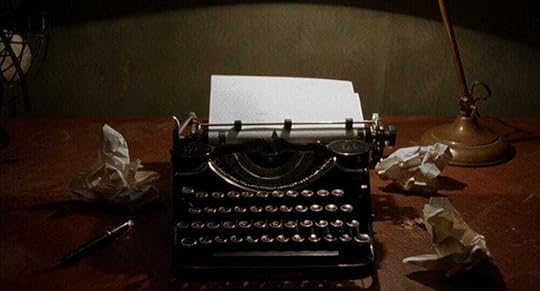
If you’re after attention, and who isn’t, you’ll know that the most attentive observers will perceive your faults as well as your charms. As I’ve said before, the appeal of the sadistic type is quite simple: They're genuinely interested in you, which is very rare indeed.
Derek’s assessment of why we write—or rather, why we become writers—rings true for me, at least somewhat. Though the idea of getting onstage terrifies me, I have always felt an affinity with performers, comedians, and actors, artists who lose themselves in exposure, preferring power over privacy and validation over safety. As writers, we have landed on this most literal of ways to control the narrative, telling all, some of us more slantly than others, so that nothing can be revealed against our will.
I will be generous to us and say that insecurity isn’t all there is to it—powered only by neuroses, our craft could not also be art. Soothing as it feels, control is the opposite of communication. When we fail to take it in hand, something more interesting happens. This is a good thing. But more on that next time.
Find me on Twitter. Get my second novel, X, right here.
January 2, 2023
DAVID: Members Only

In high school, my best friend and I bonded over the unspoken naughtiness of losing weight on purpose. Deciding how much space we were to take up was not technically allowed, though every woman in our lives, it seemed, was doing just that, their attendant menfolk grinning smugly in their wake.
Like other Millennials, my best friend and I participated in diet culture defiantly, our habits windowdressed in implication and silence rather than the humiliating earnestness on display in the tabloids and our own kitchens. The eerie, cheery concern of Weight Watchers and the hysterical effigies of Jessica Simpson in an unforgivable size 4, weren’t for us: we denied their denial. We were not doing this to appeal to the men who would hate us anyway. Our self-harm was subtle and ironic, and perhaps even functional, like that of the many boys we knew, straight and otherwise, who were even better at it than girls were.
My best friend and I maintained our inside jokes with the superiority of the cat who got the cream (though the canary would have been less fatty). Here’s one of them: want to avoid your period? All you have to do is skip a meal or three during the luteal phase of your cycle. It wasn’t funny but we laughed. And isn’t that all that a joke is—an understanding that transpires in laughter?
Davey Davis's Blog
- Davey Davis's profile
- 55 followers



